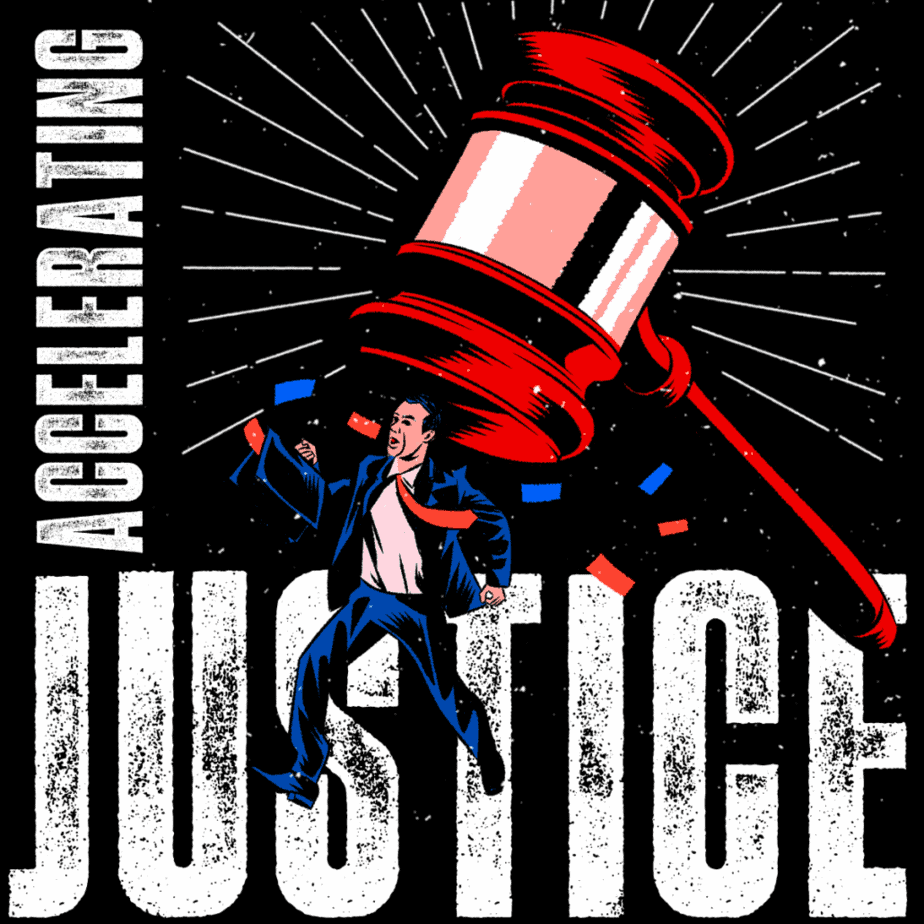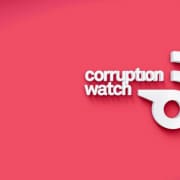|
Getting your Trinity Audio player ready...
|
Corruption Watch (CW) today released its 11th annual corruption report, Accelerating justice, at a time in the country when access to justice is looking more and more remote for millions.
The report comes out at one of the lowest points in South Africa’s democratic history, where the consequences of years of graft and corruption have left a visible mark on towns and cities across the length and breadth of the country. Public confidence in the ability of our leaders to reverse the situation is almost non-existent, amidst a failing power utility, crumbling infrastructure, and lack of health, education, policing, and most essential services.
CW’s work is more relevant than ever, as we see all these issues emerging in not only the reports that we receive on a daily basis, but in our engagements with communities in different provinces, our interaction with other civil groups, and our work to improve the environment for whistle-blowers. It is vital that we continue to push for implementation of the Zondo Commission’s recommendations, and the strengthening of systems to hold the corrupt accountable.
This report reflects a diversity of views and accounts of the organisation’s activities and perspectives on corruption during 2022, highlighting CW’s relentless push towards justice for all. Despite the grim picture that we as a nation are faced with, CW continues to lead the charge in counter-corruption engagements with social justice and development partners, as well as committed public sector actors, all intent on turning the country around.
This collaboration between Individuals and civil society organisations has at its core the commitment to accelerate justice for those who are denied this basic human right. CW’s work continues to draw on the strength and courage of those who have suffered and even lost their lives in their determination to blow the whistle and expose and defeat corruption.
To this end, says Karam Singh, executive director of CW, the organisation has adopted a definition of corruption as the abuse of entrusted power or resources, by anyone, for private gain.
“This definition seeks to articulate the view that corruption involves a symbiotic relationship between the public and private sectors,” says Singh. “It manifests in various ways, from the illicit effort to accumulate power and authority to irregularly influence democratic processes, to outright theft of resources through unlawful re-direction and accumulation of state assets.”
The problem facing South Africa because of this situation, he adds, means that at the very least, bold solutions across the vectors of ensuring accountability, promoting transparency, and seeking to embed good governance must be a prime focus, if the country is to change direction.
Whistle-blowers remain a focal point for CW. Throughout 2022, efforts among civil society and public and private sector stakeholders to improve the protection, support, and safety of whistle-blowers continued to be a high priority. CW has played a leading role in the different coalitions that have emerged since the murder of former Gauteng Department of Health official Babita Deokoran in August 2021, to advance policies and practices that will contribute towards a more conducive environment for whistle-blowers in South Africa.
Whistle-blowers say “enough”
Corruption Watch has received over 38 000 complaints of alleged corruption since its launch in 2012. In 2022, the organisation collected 2 168 reports of corruption, almost a quarter of which relate to issues of graft in the mining sector. This is owing to the organisation’s mining project which targeted mining communities during public education and advocacy drives in the Free State, North West, and KwaZulu-Natal provinces.
As in previous years, reporters blew the whistle on bad policing in 2022 – this represented the second most frequently reported focus area, accounting for approximately 11% of allegations of corruption. Completing the top four focus areas are allegations of corruption in businesses and education, counting for 8% apiece.
The types of corruption most reported countrywide across all focus areas are again reminiscent of previous years, with maladministration, including mismanagement of funds, and fruitless and wasteful expenditure counting for 25%, fraud coming in at 17%, employment irregularities, including nepotism and favouritism, at 13%, bribery and extortion, including sextortion, counting for 11%, and dereliction of duty, as well as procurement irregularities, including kickbacks and the flouting of processes, both at 9%.
There was an equal spread of reports between national and provincial government levels, with these institutional structures accounting for 28% and 26% of graft allegations respectively. However, it is at local government that corruption takes the biggest slice of just under two-thirds of whistle-blower complaints. The three biggest culprits are metropolitan municipalities – City of Johannesburg, City of Tshwane, and City of Ekurhuleni – which collectively count for 58% of incidents reported in relation to local government.
The provincial breakdown also presents a familiar picture, with Gauteng counting for 36% of complaints received, followed by KwaZulu-Natal with 18%. Free State was the province from which the third highest number of allegations were received, a result of community engagements conducted there during the period under review.
Highlights of 2022
The state capture revelations and findings of the Zondo commission were a particular focus area in 2022. CW was specifically mentioned in volumes 2 and 4 of the commission’s report part 6, in relation to the organisation’s work advocating for transparent, merit-based appointments to key leadership positions that are free from political interference. In the words of Chief Justice Raymond Zondo: “It is recommended that Parliament consider whether it is desirable to amend its rules to give effect to the proposals by Corruption Watch on appointments by Parliament”.
This was a significant achievement for CW – a validation of its commitment to transparency and accountability, and its ongoing work to advance good governance in our institutions.
Efficient public procurement is an essential part of good governance, and CW released a new report in August 2022 on procurement data drawn from information held by National Treasury and analysed in the Procurement Watch (PW) digital tool. The report covered data captured between 2016 and 2021, and is a follow-up to the first PW report released in October 2021. Both reports highlight the capabilities of PW to aggregate data, specifically in terms of deviations and expansion of contracts, along with debarment of suppliers. It is therefore an important weapon in our drive for public procurement transparency.
The September 2022 release of the sixth edition of the Analysis of Corruption Trends (ACT) again highlighted hotspots of corruption, providing insight into how corruption manifests in South African businesses, the police service, government departments and agencies, schools, hospitals and clinics, and communities at large. This insight is made possible by brave whistle-blowers who risk their lives and livelihoods to reveal the dodgy dealings of politicians, administrators, and businesspersons.
Another research output during the year was the eye-opening report on corruption in education titled Sound the Alarm. This publication highlighted 3 667 reports of education-related corruption received between 2012 and 2021, ranging from bribery, sextortion, and misappropriation of resources, to abuse of authority in procurement and recruitment processes.
Since 2017, and under the auspices of Transparency International’s global Accountable Mining Programme, CW has focused on the corruption vulnerabilities in the application phase of mining, advocating for good governance, accountability, and transparency in the approval stage of the mining value chain. The organisation has identified beneficial ownership and financial transparency as particular risks.
Consequently, a key research project resulted in the release in November 2022 of two new reports, both relating to beneficial ownership transparency in South Africa’s extractives sector, Michael Barron and Tim Law, both experts in the fields of beneficial ownership and implementation of the Extractives Industries Transparency Initiative Standard, produced the reports, which are titled Beneficial Ownership Transparency in South Africa’s mining sector and The Extractive Industries Transparency Initiative and South Africa, respectively.
It is clear, from a review of the events of 2022 and the current challenges, that numerous issues require attention and focus if we are to rid the country of the corruption that has all but derailed many of the foundations of our democracy.
“Corruption Watch is intent on accelerating its work to restore justice, equality and access to constitutional and socio-economic rights for all who live in South Africa,” says Singh. “This includes ramping up the pressure for transparency and accountability in the implementation of laws, appointments of leaders, procurement processes, and adherence to good governance systems, among others.”
The organisation will also continue to champion the need for a much-enhanced whistle-blower protection and support system, even addressing the incentivisation of whistle-blowers.
“There is no time to waste, as the window of opportunity to radically overhaul our anti-corruption efforts, and indeed our current structures and architecture, will not remain open for long. It will require commitment from the whole of society, and a steely resolve and determination to bring us back from the brink,” Singh concludes.
Download Corruption Watch’s 2022 annual report.
For media enquiries contact:
Oteng Makgotlwe
Cell: 076 473 8336 E-mail: OtengM@corruptionwatch.org.za









